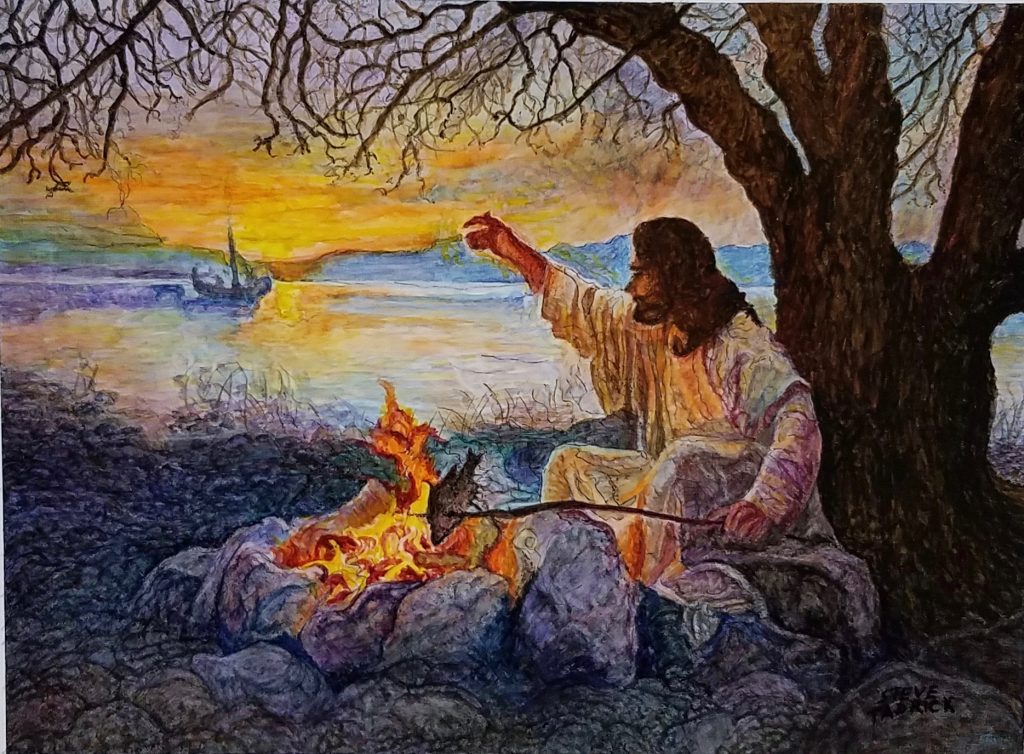
[Third in a series of posts about being the kind of servant-leaders the world needs.]
Last weekend, Sue and I spent a few days away from home (our first small trip since the onset of COVID-19), in Missouri Wine Country, a stretch of beautiful and rich land just west of St. Louis in the Missouri River Valley. 19th-century Germans immigrated here in large numbers and, finding the land of little use for much else, discovered that it wasn’t bad for grapes. It’s no Napa Valley, perhaps, but it was at one time America’s largest producer of wine and was designated the nation’s first American Viticultural Area (AVA) in 1980.
It’s a long and complicated history, interrupted by prohibition and anti-German sentiment around the time of both World Wars. But spending time amidst this landscape that boasts both natural and cultivated beauty was a reminder of the importance of stewardship of the land and, by extension, stewardship as the proper model for servant-based leadership.
For stewardship, as it relates to leadership, implies something more than supervision, oversight or authority. Stewardship begins with a deep awareness and care for whatever it is we are stewards of. Winemakers, like many others who steward the land, have a deep understanding and awareness of all their land holds and promises, so they care deeply for what is in their care and oversight. They rejoice with each great vintage and die a little when hard frost, pests, drought (or too much rain) interfere with the work of turning vines into wine.
Whatever and whoever we lead, we would do well to emulate the model of stewardship, the central point of which is that this organization (or this piece of land) is not ours for the taking but, rather, ours for the caring. As Pope Francis said in remarks during a meeting with political, business and community leaders in Quito, Ecuador, in July 2015:
“We received this world as an inheritance from past generations, but also as a loan from future generations, to whom we will have to return it!”
The same can be said of any organization, and it should be that same ethos of care and stewardship that guides us if we are called to help lead it. At the core of this kind of leadership is our awareness of God’s presence in everything, and this sense of God’s presence consoles and guides us to make good decisions and lead with love and care. To be true servant-leaders means knowing that God is at the heart of all we do. This awareness becomes prayer itself, and then our prayer grows out of ourselves and becomes action.
We become servant-leaders and “contemplatives in action” when we use (and offer back to God) the gifts we have been given without stifling, distorting or wasting them. These gifts — our temperament, character, education, experience, skills, creativity and much more — add up to what it is we have to offer the world and the organizations we lead.
Where and how we meet people in our daily walk and work is where and how we meet God, and it is our obligation to “never resist that call,” as St. Ignatius once wrote to one of his young companions, writing that his encouragement was like the old proverb of “spurs to a willing horse.” We are called to be that willing horse, accepting the gentle (if sharp) nudge of God to move ever forward in our lives of service.

So we need ask ourselves:
Can we meld and balance the “being” and “doing” of our lives?
Is our service to others “large-hearted and humble?” (Pedro Arrupe SJ)
Can we draw energy by being radically centered in Christ and transform that energy into loving, creative, generous, compassionate, healing service to others?


